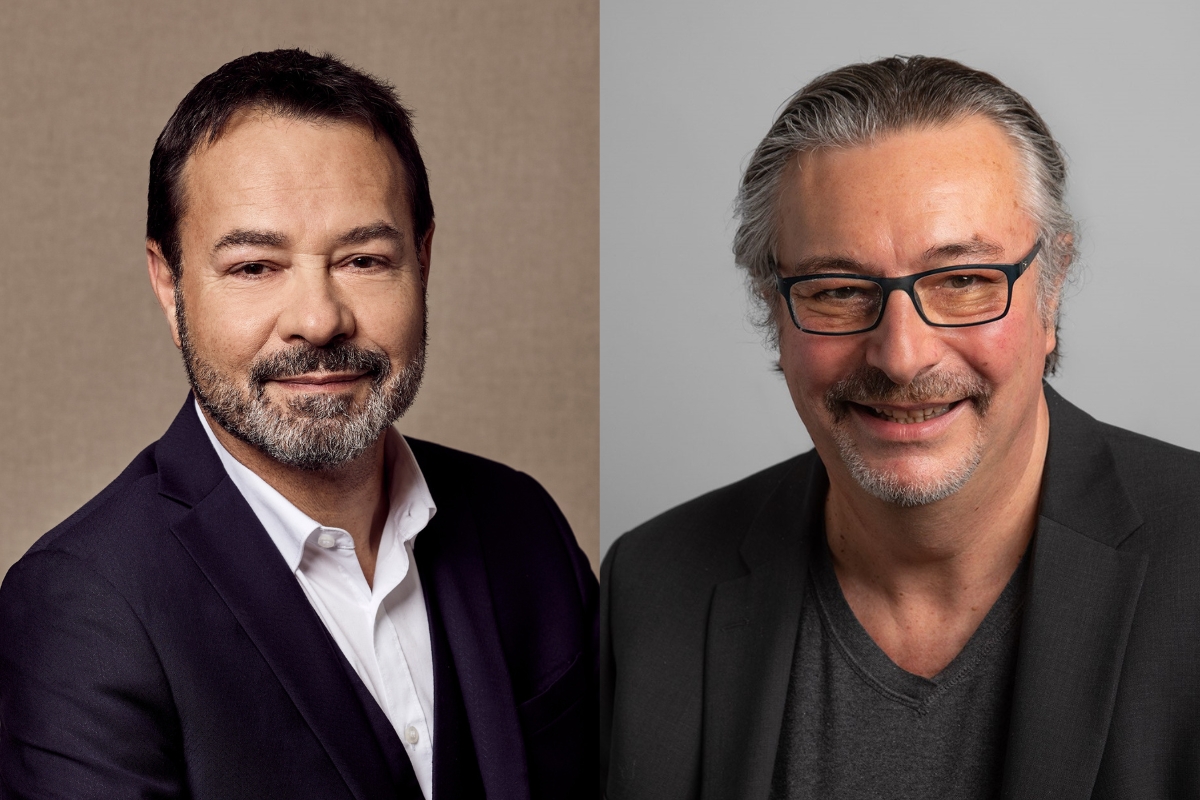Frank Sobczak, Head of the education department of the Federation of Enterprises of Swiss Romande region (FER), and Jean-Yves Mercier, Executive Director of the EMBA program at the University of Geneva, discussed about the agreement between their two organizations since January 2024.
The FER offers a wide range of educational programs. Why promote the Geneva EMBA?
Frank Sobczak. Indeed, we are active in a set of short-format courses. Long-term teaching such as masters require an academic framework that the University of Geneva inherently provides. With the Geneva EMBA being ranked among the best in Switzerland and having international recognition, we are pleased to offer our members privileged access to this high-quality training.
Jean-Yves, what are you looking for in this partnership with the FER beyond its renown and the talent pool it represents?
Jean-Yves Mercier. We want to stand alongside the main unifying market players like the FER and the Chamber of Commerce (CCIG), to participate in the regional ecosystem and to interact with businesses. The FER attracts two types of audiences that are particularly interesting to us: business leaders, who are often visionary, committed, and responsive, and professionals wishing to evolve their career from management to leadership. For these two profiles, an appointment is set to build new economic models, in tune with the transformation of the world of work in societal, environmental, and technological aspects.
Frank, these transformations are usually associated with additional obstacles for business leaders. Do you think they actually hide unprecedented opportunities, as proposed by the Geneva EMBA?
F.S: These challenges do indeed represent real opportunities, nevertheless linked to the relevance of their implementation in the value chains. The Geneva EMBA aims to develop the leadership and self-leadership of managers in devising strategies that integrate these new paradigms of progress. Thanks to this, a generation of decision-makers is emerging to ensure the economic success of our region in this period of change.
What are the conditions of this partnership between the FER and the Geneva EMBA?
J-Y.M. Our partnership includes several aspects. We organize events to present the EMBA program in detail. We also offer FER members a 20% reduction on the tuition fees, with the unique opportunity for each participant to carry out a consulting project related to their professional issues or those of their company.
F.S. Our partnership aims to create closer ties between the academic world and the business world. We hope that this collaboration will encourage the exchange of ideas and the establishment of common plans to strengthen the dynamism of Geneva.
Could you describe the typical business leader from Swiss Romande region?
F.S. It is difficult to establish a standard profile, as the Geneva economy is very diversified. However, I would describe them as courageous, tenacious, passionate, and concerned with social issues. They show open-mindedness and are willing to engage in the development of their region.
What is the perception of business leaders towards the academic world?
F.S. Business leaders have great respect for the academic world, but they can sometimes perceive its methods as too… academic. We should encourage collaboration between these two worlds that depend on each other. Nonetheless, I think there is a growing recognition of their complementarity and the importance of working together to produce the talents that will shape our long-term future.
What changes do you wish to see in leaders after completing the Geneva EMBA program?
J-Y. M. I hope that participants develop their capacity for analysis, foresight, and leadership beyond team management, which will allow them to better understand the new challenges, make informed decisions for their organization and by extension, for the economy of Swiss Romande region.
Frank, if you could change one thing in the Geneva area, what would it be?
F.S. I would like to see greater collaboration and open dialogue between different economic players, to overcome barriers and work together for the benefit of the region. Training is not just about improving skills to enhance a professional career: it is a logical consequence of technological acceleration and the redefinition of the very notions of accomplishment, growth, and preservation.



